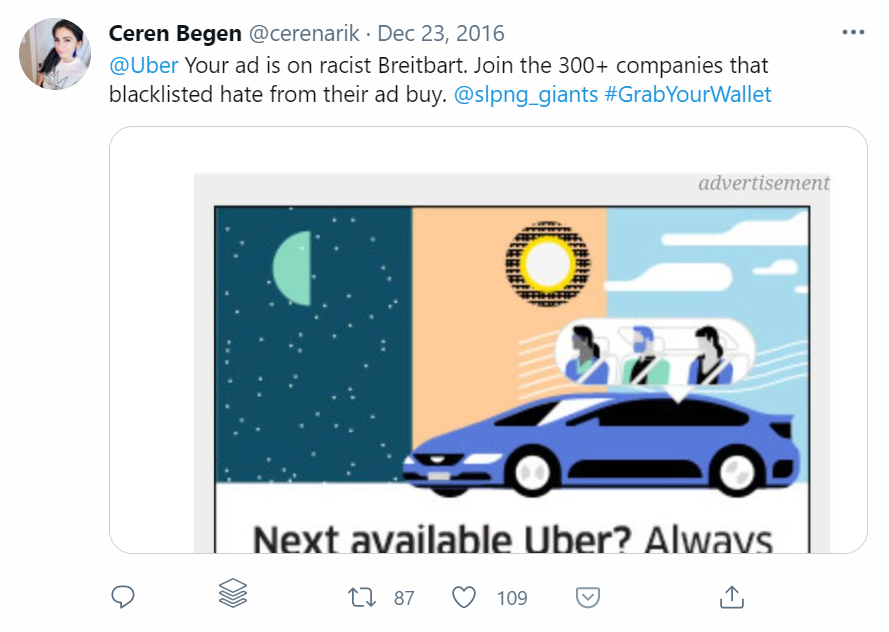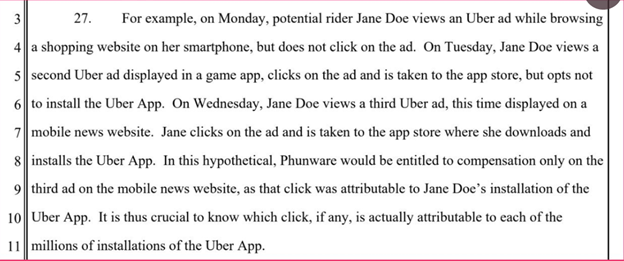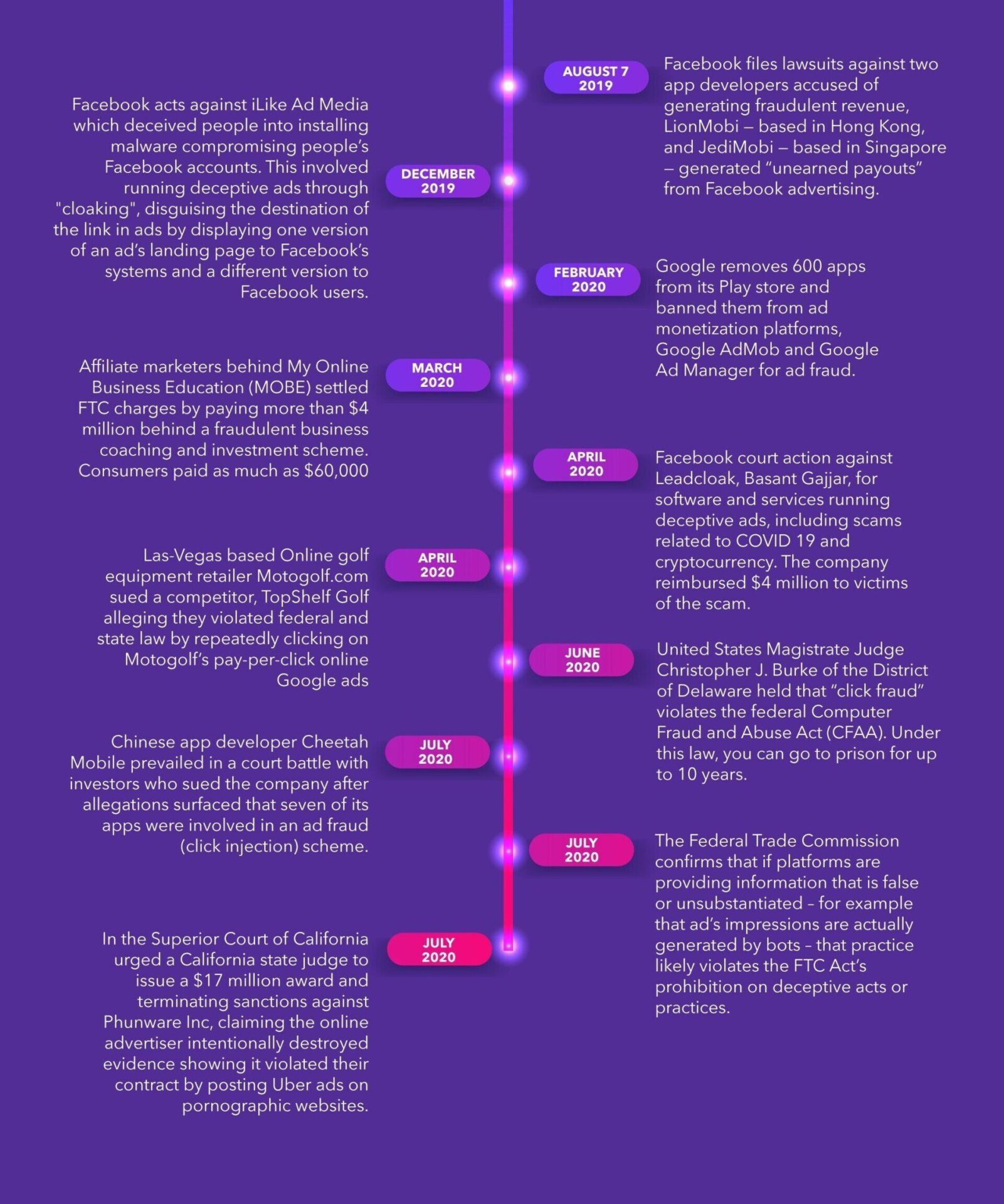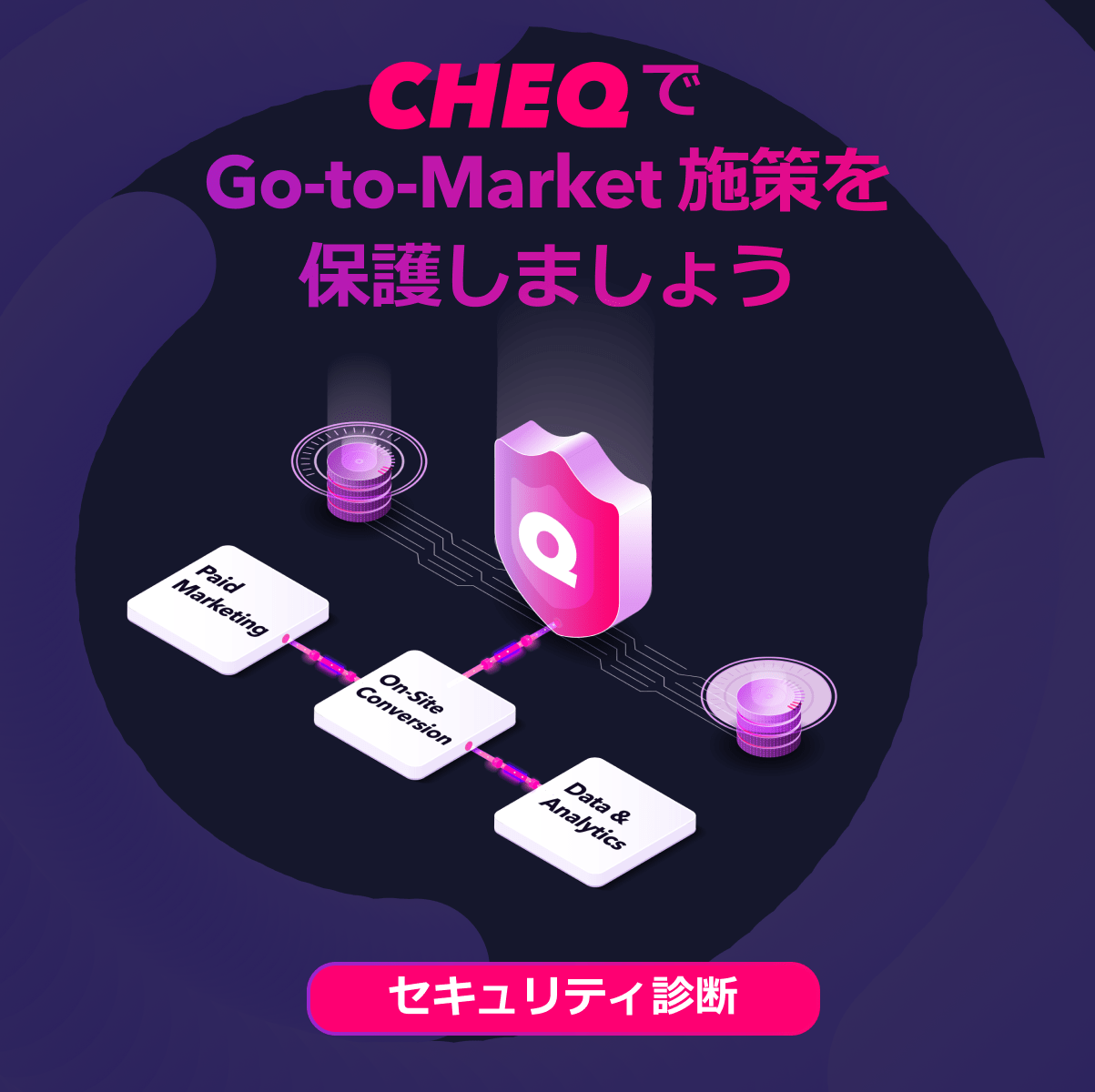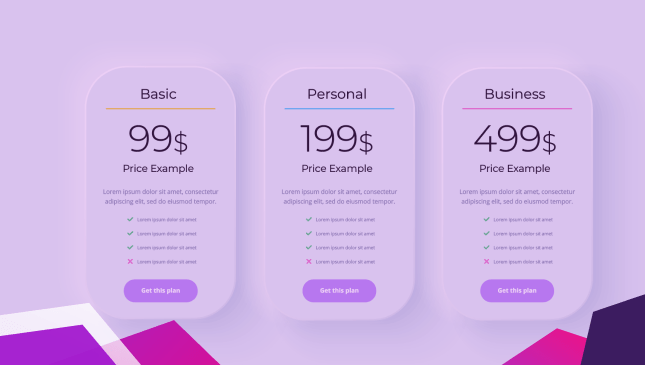10 Crucial Lessons from the $6m Uber Ad fraud settlement
Jonathan Marciano
|Marketing | March 03, 2021

The most high-profile ad fraud case ended in November 2020 after four years of court drama. Phunware, one of the networks engaged indirectly by ride-hailing giant Uber, agreed to pay $ 6 million to their client. This settled claims by Uber that their network had falsely billed them for ad clicks they did not deliver. Austin-based and NASDAQ-listed Phunware filed the settlement agreement to the Securities and Exchange Commission. Though the payout was a far cry from the $ 17 million in damages originally asked for, Uber dropped claims against named defendants Alan Knitowski, Marty Borotsik, Andrew Cook, and David Stasiuk as part of the agreement.
The case also brought out in vivid technicolor in court a number of lessons for every customer acquisition leader.
1. The complexity of online advertising is a Breeding Ground for Fraud
The complexity of relationships and lack of transparency was brought into the open.
Fittingly the biggest ever ad fraud case began with an irate CEO, and his customer acquisition team attempting to explain the complexities of online ad placement.
Then-Uber CEO Travis Kalanick wanted to know why the seemingly simple act of getting Uber ads pulled from certain corners of the internet was so hard. The flames were being fanned by activist group Sleeping Giants as Kalanick was getting berated online whenever netizens saw Uber ads online on alt right news site Breitbart.
Here, the court was presented correspondence from one campaign manager seeking to give answers on the buying placements for the client. This mentions one destination that “should be 100% non-adult”, another that should be “pretty clean” while another which as a big network has a higher chance of a publisher potentially placing “their code on adult sites.” The case is a microcosm of online advertising, which compared to other sectors, is less regulated and less interconnected. Online advertising has created a situation in which the situation and interests of more than 20 parties are not aligned, a CHEQ and University of Baltimore study has found. This has led to a situation where ad fraud has become a bigger business than credit card fraud. This is despite the fact that only $333 billion is spent annually on digital advertising, compared to $3.32 trillion in the credit card sector.
2. Fraud hurts customer acquisition
The case showed how simple it is for breakdowns in customer acquisition campaigns. The court heard for instance how a typical customer acquisition (in this case, getting drivers to install the Uber app) is supposed to work in an ideal world.
However, Uber argued that deception is easy to carry out. In this specific case, it involved intruding on the app install journey. The court heard that: “knowing that Uber would only pay for ads running on certain sites, the Defendants caused to be written and wrote software known as scripts that falsified the location of the ads. As a further part of the scheme to defraud Defendants caused to be carried out and carried out click flooding. This caused a higher number of clicks to be reported than were actually occurring.”
Lawyers for Uber argued that “auto-redirects were also used, in which a user is automatically directed to the App Store without having made a conscious choice or having clicked on an ad.”
Uber “concluded that roughly 90% of the installs for which it paid Phunware were actually organic installs for which payment was not necessary.” Lawyers for Uber put their case simply and cleanly: “Had Uber known the true facts, Uber would have paid only for legitimate mobile ads attributable to installations.”
This is only a selection of methods used to destroy customer acquisition campaigns.
3. The need to safeguard whistleblowers
Uber’s law firm, Reed Smith pointed out that the case started with whistleblowers from the network. Their release said that “two former Phunware employees conducted an internal investigation discovering that Phunware had falsely billed Uber for ad clicks they did not deliver.” Former Phunware executive Ian Karnell agreed to be identified by CBS News as “Employee B”. CBS claims that Karnell was fired by Phunware in 2018 for “poor performance”. Reed Smith Intellectual Property, Technology and Data partner John Bovich, who served as lead counsel for Uber, takes as a main takeaway “the dangers of ignoring and attempting to conceal your own internal investigations.”
4. The motive *not* to report remains a barrier
However, the chances of whistleblowers ever emerging are low. This is not least because of high payouts for success in driving new customers, whether real or not. The court heard that one team member responsible for managing the campaign saw an increase in his base salary of $110,000 per year for “success” in lining up more and more drivers for Uber through app installs. Kevin Frisch, former Head of Performance Marketing at Uber told the podcast Marketing Today about uncovering discrepancies in the campaign spending. He argues that most agencies cannot be blamed for not speaking out.
Frisch says: “They are not bad people but overcoming human incentives is hard. Even your team(is not immune). Getting a true app install costs me $40 and I find a source that is only costing me $5, and I am beating all my numbers. Is the first thing I am going to do as a director of acquisition is say ‘maybe I am not really crushing my numbers maybe there’s something going on here’. That is not how humans work – we will say ‘I am killing it’, what else can I do?”
5. Campaign data needs to be kept
The lack of preservation of important of important ad campaign data also came under deep scrutiny. Reed Smith protested “an egregious destruction of evidence”. This included “the unexplained loss” of emails and computers. Loss of information related to “HasOffers” data and site ID data, publisher IDs, source Ida, device IDs, referral URLs. This was described as “critical evidence to the case and without which it is not possible to reconstruct purchases.” In order to protect themselves parties have been advised to ensure this data is maintained in case happy relationships go sour down the road.
6. Correspondence is not private
Many private correspondences were disclosed, as Uber attempted to argue a RICO prosecution (used famously to bring down New York Mafia bosses). Under this law, Uber needed to prove transmission of wire communications in interstate and foreign commerce. For example, in an email sent on Oct. 31, 2016, a Phunware employees wrote: “Guys it’s… time to spin some more BS to Uber to keep the lights on.” Another Phunware employee wrote “Only option we have now is to go hunt links/screenshots from other networks/affiliates and light a big fuck off fire for Uber to put out to take the heat off us.” In another case a subject title email states “Please Help – Domain Broken” pointing out that “this domain (http://dailyprizegiveaway.mobi/) is no longer working. The conversation involved a plea with IT to “get it back up” arguing that “we will have to come up with a solution here as there is a lot of revenue attached to this domain.”
7. Big savings can be made by identifying invalid clicks in campaigns
In the end, unable to find out the source of Breitbart ads appearing, Frisch simply turned off two-thirds of his $150m ad spend. Nothing happened. He says: “We turned off two-thirds of our spend 100m of annual spend out of the $150m and basically saw no change in our number of rider app installs”. He claims this is because the paid-for-installs were now correctly attributed to organic installs – for instance through word of mouth.
However ironically though so much was saved Frisch adds that “back in the heady days of 2017 actually people didn’t care that much about [the saving]. Today saving $100m now would be life changing. But then it was about how are we reinvesting money to grow faster? At the time there was no desire to save money – it was all about spending to budget. It was a very different culture and business attitude.”
Today Uber’s marketing has been shaved down, laying off around 400 of its 1200 marketers. In such a climate finding such savings would involve a ticker tape parade.
8. Shades of gray
Despite the final settlement, the case crystalized how far many consider certain ad practices to be “gray”. In the words of one correspondence lodged in discovery, from a defendant sent on 19 June, 2019, “Ultimately, we were not buying fraud, in terms of fake users. We just buying shitty grey traffic and falsifying the placement. That not cool, but I fear we get lumped into this whole other straight up fraud side.” He went on to say: “I think also [Uber is making] a attempt to get street credibility from other tech companies they fight the corrupt ad space. I know fraud in the industry is on everyone’s radar. So, part of me thinks the trying to gain popularity for taking action (sic).”
9. Customer acquisition leaders: be vigilant
Frisch adds that he does not believe that much has changed since the four-year battle finally concluded.
He adds that the only solution is for demand acquisition leaders to take ad fraud seriously, recognizing the serious consequences for metrics across their organization, including getting new customers and seeing true growth. Frisch says: “There has to be someone who does not have a stake in this spend going away and your cost per acquired customer going up. Remember, fraudulent new customers, are much cheaper than ones you actually incrementally acquire. You have to always be on it you have to poke here and dig here.”
10. Court cases for customer acquisition campaigns remain rare
Cases rarely get to court. Even in this episode, a related $40 million case between Uber and Fetch ended early. (In March 2019, Fetch, retained to run Uber’s mobile advertising campaign from 2014 to 2017 settled on terms that have not yet been disclosed). Overall, few companies have the stomach and the desire to take action in court. That said, there have been some notable cases against fraud including some vital cases showing that click fraud is illegal. Because of the funds required, It is usually big companies (Facebook or Google, and now Uber) or governments that have taken action to prosecute alleged wrongdoing.
Uber dug into their advertising funnel to check for hackers. This became a major reason for Uber uncovering problems and optimizing their campaigns. CHEQ for PPC is the first solution to block invalid clicks across multiple platforms including Google, Facebook, Instagram, Baidu, Bing, LinkedIn, Snap, Twitter, Pinterest, Yahoo, Yandex, and more. Though as this landmark case shows, the first step is for companies and their leaders to understand how things can go wrong and then choose the optimum way to clean the pipes by removing invalid and fraudulent clicks. The case shows that the long-term effects of these efforts are vital, in a long-term bid to secure real customer acquisition and genuine growth.
P.S.
Want to protect your sites and ads? Click here to Request a Demo.
